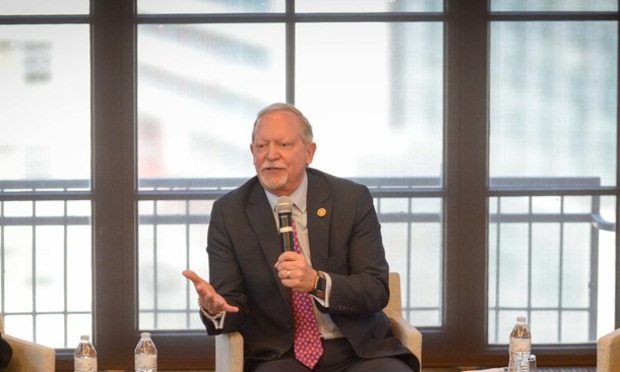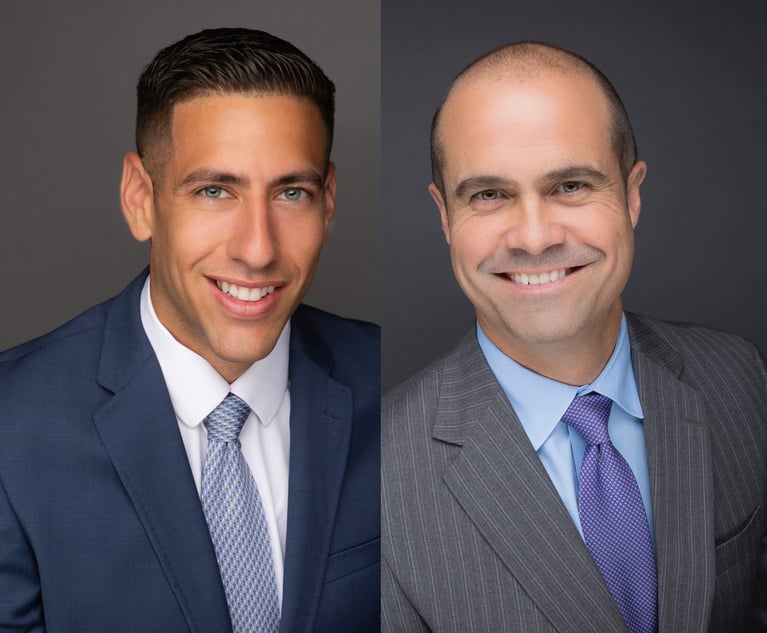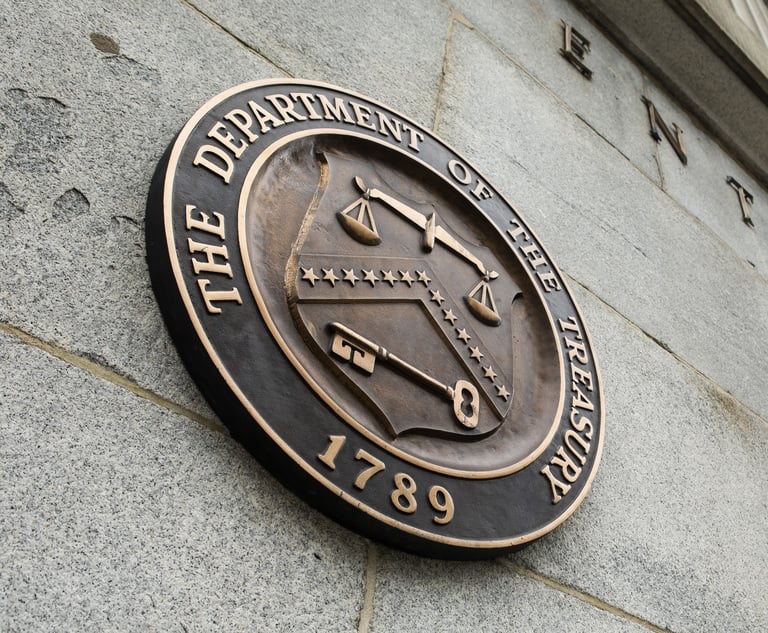With Membership Falling, ABA President Pushes New Dues Structure and Focus
"We're trying to figure out a way to meet the evolving need of this profession and the changing needs of the next generation of lawyers," Bob Carlson says.
April 30, 2019 at 02:18 PM
5 minute read
The original version of this story was published on Law.com
 ABA President Bob Carlson. Photo: David Handschuh
ABA President Bob Carlson. Photo: David Handschuh
The American Bar Association has overhauled its membership structure in a bid to reverse years of declining participation and falling revenue with the changes taking effect May 1.
The intent is to simplify a complex dues structure, reduce costs for members and make the association more relevant to attorneys through targeted content. The ABA hopes to complete renewals under the new structure by September.
ABA leadership signed off on the overhaul last August amid mounting challenges. It has lost about 56,000 dues-paying members in the past 10 years, and fewer than 200,000 of its 424,000 members pay dues. Less than 13 percent of the nation's lawyers are dues-paying members.
The association's general budget declined by 22 percent from 2014 to 2018, and it projected an additional $15 million annual loss in dues revenue last year unless changes were made. The changes are projected to result in short-term financial losses but recovery with membership gains over time.
Annual membership costs will go down for all members, and the savings will be the highest for attorneys in the early stages of their careers. Those with five years or less of experience will pay $75 annually, down from the current range of $146 to $250. Members can access the Law Practice and GP Solo Divisions at no additional cost, but membership in most of the individual sections will cost $10 to $105 annually. More content on the ABA's website will be restricted to members and members of individual sections, though all members will have access to a library of free CLE courses.
Law.com talked with ABA president Bob Carlson, a partner at Corette Black Carlson & Mickelson in Butte, Montana, about the new structure and why members have been fleeing the group. His answers have been edited for length.
Why do you think ABA membership has been declining? I think that there has been a change across the board with associations — not just the ABA and not just professional associations. We're trying to figure out a way to meet the evolving need of this profession and the changing needs of the next generation of lawyers. It's something we've been looking at for quite a while. We think we've found the right recipe, if you will, to reverse that trend and move forward with a benefits package and membership model that will meet not only the needs of lawyers who have been practicing for 15, 20 years or more, but also those in law school and younger lawyers.
Some critics say membership has been waning because ABA has become too political. What's your response to that? I don't think it has become too political. First, you have to look at where our statements come from. They come from policies that have been developed by our House of Delegates, which has at least three people from each state. We have people in the house who are liberal. We have people who are conservative. Probably most fit into where most people are, which is that middle ground of moderates one way or another.
We do speak out on issues related to due process, the rule of law, an independent judiciary and access to justice. In my mind, those aren't liberal. Those are fundamental rights guaranteed by the Constitution. We're the perfect organization to speak out on those.
Why should people join the ABA? It sort of depends on who you are and what point you are at in your career. I think the selling point is that people need an association that will speak out on behalf of the profession and on behalf of the judiciary. A lot of people go to law school for that very reason and will gravitate towards an association that has that national voice. Second, our association is designed to make you not only a better lawyer, but really a better person and contributor to society. People look for networking and substantive practice information. By and large, people want an association that speaks with a national voice and stands up not just for the legal profession but for the justice system.
What's the strategy to make the ABA more attractive to younger lawyers? Younger lawyers want to give back. They want to make a difference. So we have plenty of coordinated opportunities to allow them to provide pro bono assistance and get involved in activities to help their communities. We also provide the connectivity that allows them to experience a broad base of legal experts in every field. It gives them a way to connect with their peers and lawyers and judges who are exceptional in their fields.
May 1 is Law Day, and the ABA has selected free speech as its theme. Why? It's definitely timely. We wanted to make sure we have a dialog across the country to tell people how important it is to have not just free speech but a free press, and inform them about what's going on and encourage a civil dialog among people who may have different views. We want to encourage people to listen to each other and respect each other's freedoms under the Constitution.
This content has been archived. It is available through our partners, LexisNexis® and Bloomberg Law.
To view this content, please continue to their sites.
Not a Lexis Subscriber?
Subscribe Now
Not a Bloomberg Law Subscriber?
Subscribe Now
NOT FOR REPRINT
© 2025 ALM Global, LLC, All Rights Reserved. Request academic re-use from www.copyright.com. All other uses, submit a request to [email protected]. For more information visit Asset & Logo Licensing.
You Might Like
View All
Holland & Knight Hires Former Davis Wright Tremaine Managing Partner in Seattle
3 minute read


Local Boutique Expands Significantly, Hiring Litigator Who Won $63M Verdict Against City of Miami Commissioner
3 minute readTrending Stories
- 1On The Move: Ex-Partner Returns to Lead Nelson Mullins Corporate Group, Burr & Forman Hires University GC as COO
- 2Energy Lawyers Field Client Questions as Trump Issues Executive Orders on Industry Funding, Oversight
- 3SEC Revokes Biden-Era Crypto Accounting Guidance
- 4CNN's $16M Settlement With Trump Sets Bad Precedent in Uncertain Times
- 5Regulating Charities: A Small Suggestion
Who Got The Work
J. Brugh Lower of Gibbons has entered an appearance for industrial equipment supplier Devco Corporation in a pending trademark infringement lawsuit. The suit, accusing the defendant of selling knock-off Graco products, was filed Dec. 18 in New Jersey District Court by Rivkin Radler on behalf of Graco Inc. and Graco Minnesota. The case, assigned to U.S. District Judge Zahid N. Quraishi, is 3:24-cv-11294, Graco Inc. et al v. Devco Corporation.
Who Got The Work
Rebecca Maller-Stein and Kent A. Yalowitz of Arnold & Porter Kaye Scholer have entered their appearances for Hanaco Venture Capital and its executives, Lior Prosor and David Frankel, in a pending securities lawsuit. The action, filed on Dec. 24 in New York Southern District Court by Zell, Aron & Co. on behalf of Goldeneye Advisors, accuses the defendants of negligently and fraudulently managing the plaintiff's $1 million investment. The case, assigned to U.S. District Judge Vernon S. Broderick, is 1:24-cv-09918, Goldeneye Advisors, LLC v. Hanaco Venture Capital, Ltd. et al.
Who Got The Work
Attorneys from A&O Shearman has stepped in as defense counsel for Toronto-Dominion Bank and other defendants in a pending securities class action. The suit, filed Dec. 11 in New York Southern District Court by Bleichmar Fonti & Auld, accuses the defendants of concealing the bank's 'pervasive' deficiencies in regards to its compliance with the Bank Secrecy Act and the quality of its anti-money laundering controls. The case, assigned to U.S. District Judge Arun Subramanian, is 1:24-cv-09445, Gonzalez v. The Toronto-Dominion Bank et al.
Who Got The Work
Crown Castle International, a Pennsylvania company providing shared communications infrastructure, has turned to Luke D. Wolf of Gordon Rees Scully Mansukhani to fend off a pending breach-of-contract lawsuit. The court action, filed Nov. 25 in Michigan Eastern District Court by Hooper Hathaway PC on behalf of The Town Residences LLC, accuses Crown Castle of failing to transfer approximately $30,000 in utility payments from T-Mobile in breach of a roof-top lease and assignment agreement. The case, assigned to U.S. District Judge Susan K. Declercq, is 2:24-cv-13131, The Town Residences LLC v. T-Mobile US, Inc. et al.
Who Got The Work
Wilfred P. Coronato and Daniel M. Schwartz of McCarter & English have stepped in as defense counsel to Electrolux Home Products Inc. in a pending product liability lawsuit. The court action, filed Nov. 26 in New York Eastern District Court by Poulos Lopiccolo PC and Nagel Rice LLP on behalf of David Stern, alleges that the defendant's refrigerators’ drawers and shelving repeatedly break and fall apart within months after purchase. The case, assigned to U.S. District Judge Joan M. Azrack, is 2:24-cv-08204, Stern v. Electrolux Home Products, Inc.
Featured Firms
Law Offices of Gary Martin Hays & Associates, P.C.
(470) 294-1674
Law Offices of Mark E. Salomone
(857) 444-6468
Smith & Hassler
(713) 739-1250






